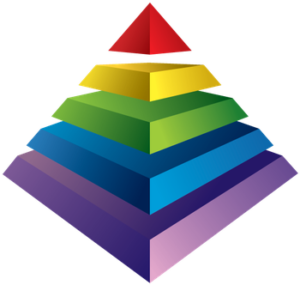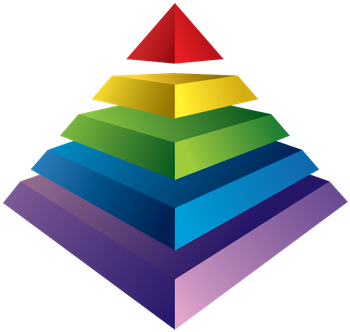- Posted on
- 0

A framework provides capabilities that developers can enhance or extend. A web application framework provides many of the common needs of building web applications allowing developers to concentrate only on the parts that are specific to their application.
Every framework makes choices about how a particular problem should be solved. When developers choose to use a framework, they cede control over the portions of their application that are provided by the framework. It is possible to write a complete web application without any framework, by using Python libraries. In practice, however, it is often more practical to use a framework, so long as your chosen framework fits the requirements of your application.
There are many tools available for web development. What would make someone want to use Pyramid instead? What makes Pyramid unique?
With Pyramid you can write very small applications without needing to know a lot. And by learning a bit more, you can write very large applications too. Pyramid will allow you to become productive quickly, and will grow with you. It won’t hold you back when your application is small, and it won’t get in your way when your application becomes large. Other application frameworks seem to fall into two non-overlapping categories: those that support “small apps” and those designed for “big apps”. Don’t believe you should have to make this choice. You can’t really know how large your application will become. You certainly shouldn’t have to rewrite a small application in another framework when it gets “too big”. A well-designed framework should be able to be good at both. Pyramid is that kind of framework. You’ll find that its toolset is slightly larger than the one provided in Flask, however, you still need to choose the ORM, template language, forms services, and others
Pyramid provides a set of features that are unique among Python web frameworks. Others may provide some, but only Pyramid provides them all, in one place, fully documented, and without needing to pay for the whole banquet.
End up fighting other decisions. Microframeworks force no decisions, making it easy to start. But as your application grows, you’re on your own.
In both cases, the focus is on the start: either too much or too little. Either way, finishing and staying finished is hard. You need a finishing-focused framework with an architectural design that scales down to getting started, then up as your application grows.
Pyramid was made for just this. It’s a Goldilocks Solution: not too small, not too big,just right.
Pyramid The Start Small, Finish Big, Stay Finished Framework.
Python has become the language of choice for ML projects because of its accessible language structure and large collection of rich package libraries. However, up to 80 percent of data scientists’ time can be spent finding, cleansing, and organizing data—which is far less about ML and more about “ETL.” Furthermore, the language is still not for everyone, and can exclude most non-code-savvy data users from testing, developing, and deploying machine learning models to produce useful outcomes.
Instead of allowing users to learn, evaluate and predict, then build content in distinct phases, they expect users to insert and execute Python code and build reports and dashboards, all in one step. This is often performed on a desktop against a subset of data, severely decreasing the likelihood of accurate results. There is no framework for crunching millions of rows of data to build ML models; and there is no venue to reapply models for predictions. In many respects, most BI tools treat Python as a side-show gimmick, without providing a serious framework to produce accurate, scalable ML-driven analyses.
We like Pyramid over Django, Flask, and Bottle for projects that require flexibility, scalability and speed. It gives us more control than Django and is easy to create a small app that can scale later without being rewritten.
Python has become an increasingly popular language for organizations running ML predictions to help them with key strategic and operational decisions. However, creating meaningful ML applications requires data to be trained on a model in a batch process using powerful servers. Further, the algorithms used to perform the predictions need to be evaluated and fine-tuned to increase their accuracy. Then the predictive algorithms need to be applied to data sets that sometimes contain billions of rows.
These advanced functions cannot be performed on a desktop BI solution with insufficient hardware, on a small subset of data within a report, where the model cannot be saved and the results cannot be stored, as is done by most third-party BI tools.
In contrast, Pyramid provides a robust, scalable Python integration that allows distinct learning, evaluation, and prediction processes in a server-based batch processing environment, where the resultant model can be saved, shared, and reused to perform additional prediction tasks. The prediction can also be saved and reused in all related analyses.
What’s more, normally complex data extraction and preparation tasks can be easily accomplished using Pyramid’s drag-and-drop modelling tool, saving huge development time and effort. This accessible tool also makes it infinitely easier for citizen data scientists who may not have the same level of expertise with Python. Lastly, Pyramid’s entire self-service BI platform provides a one-stop-shopping experience for the entire arc, from the very start to the very end.
Pyramid web applications are based on the modules, libraries and tools, allowing our developers implement complex functionalities and features in a fast and efficient manner. They are easy to extend, reuse and modify by third-party developers. Overall, Pyramid delivers complexity in a simple solution.
Pyramids provides a set of features that are unique among Python web frameworks. Others may provide some, but only Pyramid provides them all, in one place, fully documented, and carte without needing to pay for the whole banquet. Pyramid is an open source python web framework with a large and active community. This large community contributes towards making the python web framework popular and relevant. Pyramid web framework simplify and accelerate web application development by providing a set of robust features and tools.
